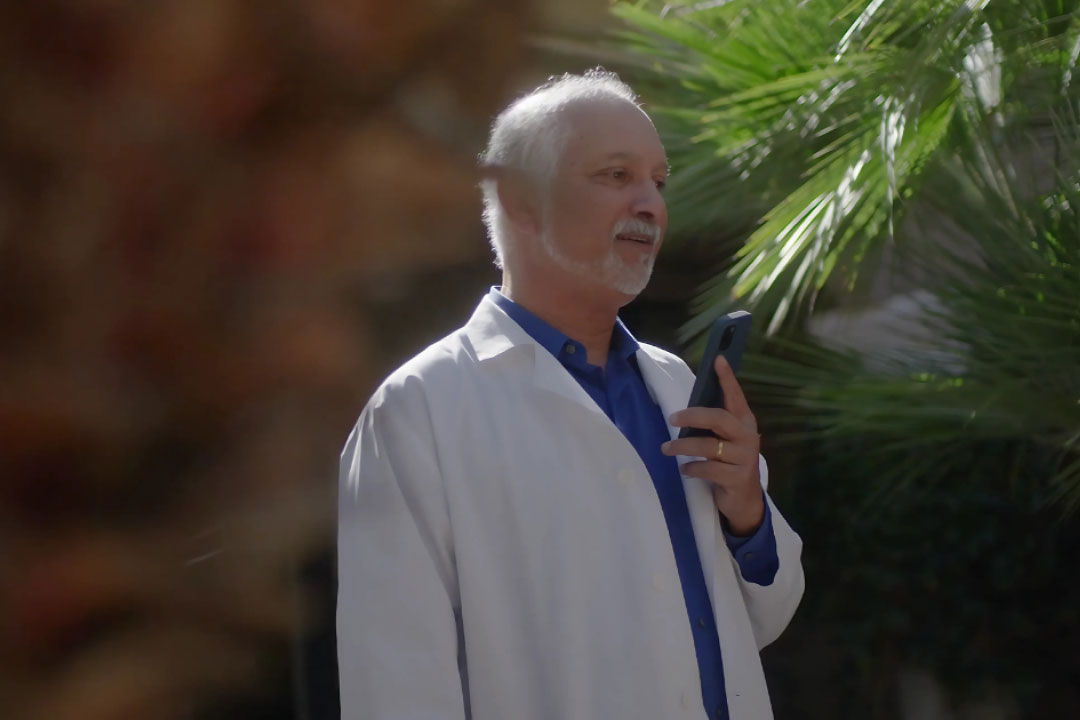There must be a better way to practice medicine
Daniel Frank, MD, a key leader within Optum Networks, has experienced firsthand what it’s like to not have enough time to spend with each patient who needed his care.
“It is demoralizing and challenging to know your patients need more of your time and guidance than you are able to provide,” said Dr. Frank. “This is a frequent challenge experienced by providers when seeing patients in a traditional fee-for-service (FFS) model.”
As a family physician practicing in South Florida, he knew there had to be a better way to practice medicine. He was later given the opportunity to leave his fee-for-service environment and join an integrated value-based care (VBC) practice at Southwest Medical Associates located in Las Vegas, Nevada.
According to Dr. Frank, he jumped at the chance to join a practice moving to value-based care because he knew it would give him an environment to focus on treating his patients holistically.
“In my early years of practicing medicine in a traditional FFS construct, I remember feeling frustrated when a patient would come in for one issue, and it was clear that there were others we should address as well. But our model didn’t allow for that,” said Dr. Frank. “It was more about how many patients I was seeing versus why I went into medicine in the first place, to help patients live their healthiest lives. So, when I was given the opportunity to join a practice model that allowed for comprehensive patient care, I took it.”
Dr. Frank’s time at Southwest Medical Associates not only changed how he practiced medicine, but it also sparked a passion for helping other provider groups adopt VBC models, eventually leading to his role at Optum Health.
In a VBC model, Dr. Frank says providers are rewarded for helping patients achieve their best health outcomes.
Holistic care takes a village
For patients to achieve their health goals, they often need access to resources outside of the doctor’s office. Whether it’s transportation, financial assistance for medication or social work, it takes a team to help patients follow their care plan.
“In a successful VBC model, there’s a community all working together to deliver holistic care,” said Frank. “With a team of social workers, care navigators, pharmacists, additional nursing and medical assistance staff, providers aren’t alone in addressing the complex needs of the patients they serve.”
When these teams and resources are coordinated, the overall care experience for the patient improves. Additionally, by sharing data and increasing transparency, care teams can provide quality, evidence-based patient interventions for the right patient, at the right time.
Value-based care improves health outcomes
With the ability to offer more resources to patients and providers, both parties experience the benefits including improved engagement, and outcomes. According to Dr. Frank, more resources also reduce provider burnout.
This is demonstrated through net-promoter scores (NPS), the industry standard measure of customer experience and loyalty. In a 2021-2022 NPS survey, provider groups predominately involved in VBC had a satisfaction score of 76 while groups in FFS ranged in the low 50s to high 60s, increasing toward 70 as their percent of membership in value-based arrangement increases.
“In VBC models, providers are able to reconnect with the joy of clinical practice,” said Dr. Frank. “While it may seem daunting or uncertain at first, in the end, VBC lets providers focus on the best care for their patients and gives them the resources they need to address all of the complexities that go into comprehensive patient care.”
According to Dr. Frank, the transition to VBC isn’t a maybe, it’s a must for our healthcare system.
“VBC is the future of healthcare in the United States,” added Dr. Frank. “If we don’t change something, healthcare expenditures will continue to be unsustainable and provider burnout will only grow. VBC by definition gets back to what’s in the best interest of the patient. And if we keep that at the center of care, all parties benefit in the end.”
About the author
Dr. Daniel Frank
A leader of clinical strategy at Optum Networks
Related healthcare insights

Article
One expert explains that even larger organizations can make a successful leap to value-based care.

Video
Learn how Optum provides value-based care resources which enable providers to succeed.

Video
In this video, Dr. Peter DeSilva shares a detailed account of his experience working with the Optum Network in California.
